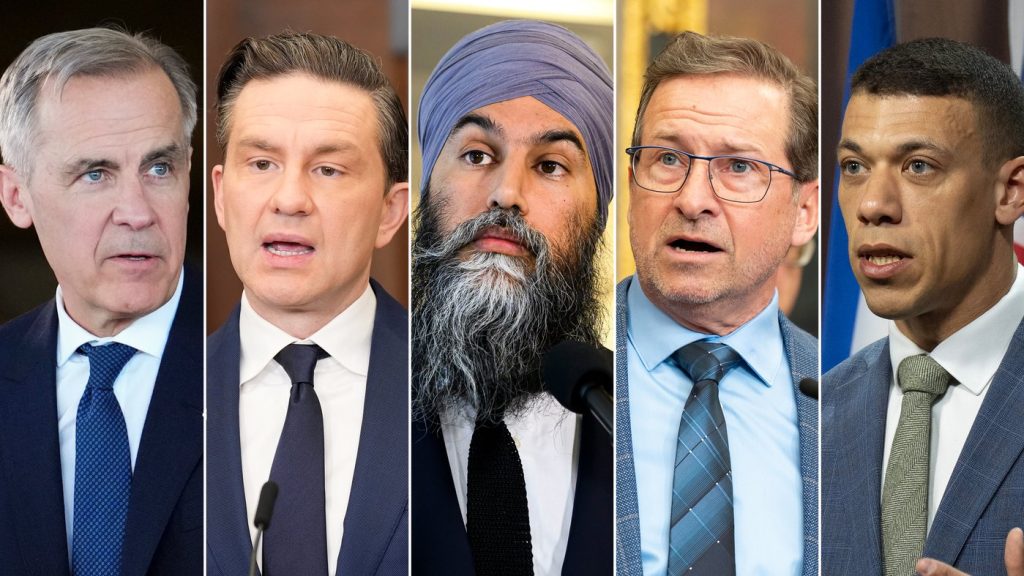OTTAWA — Liberal Leader Mark Carney's proficiency in French will be critically evaluated, and Conservative Leader Pierre Poilievre seeks to improve his standing, as the five main federal party leaders prepare to engage in a debate tonight in Montreal. This event marks the first of two discussions leading up to the election scheduled for April 28.
The two-hour French-language debate will be moderated by Patrice Roy of Radio-Canada and will concentrate on five key themes: the cost of living, energy and climate concerns, the ongoing trade war, matters of identity and sovereignty, and immigration and foreign affairs.
Among the leaders, NDP Leader Jagmeet Singh and Bloc Québécois Leader Yves-François Blanchet are the only ones with prior federal debate experience. Although Carney and Poilievre have participated in their parties’ leadership races, this will be a new arena for them at the federal level.
According to Barry McLaughlin, who has coached notable political figures in debates, “Carney has to do a decent job. He doesn’t have to win it, he doesn’t have to have all the great sound bites. But he’s got to be seen as reasonable and able to handle the debate in the French language.” He emphasized that this ability sets the standard for Canada’s next potential prime minister.
Carney faced challenges during his French debate in the Liberal leadership race, particularly when discussing Hamas, a situation in which he received unexpected support from opponent Chrystia Freeland. Despite previous criticisms of his French skills, recent polls indicate that Carney's Liberals hold over 40 percent support in Quebec, suggesting that language proficiency may not heavily impact voter sentiment.
Political science professor Daniel Béland from McGill University noted, “Now that people have been exposed to (Carney’s) French, it’s been criticized a lot, but it has not really affected voters that much, at least their opinion.” He attributed this to the campaign's focus on critical issues like economic competition with the United States rather than cultural or regional debates.
Both McLaughlin and Béland advised Poilievre to present a gentler, more approachable persona to attract votes beyond his core base. McLaughlin remarked, “The thing that I think creates discomfort is, what is he like as a person? What are his true motives? Is he someone you’d like to have a beer with?” This perspective mirrors strategies used successfully in past debates.
Despite challenges, Béland observed that Poilievre displayed some composure during a recent appearance on the popular Quebec talk show Tout le monde en parle, where he shifted his image from an aggressive opposition leader to a more relaxed figure. Whether this change is timely remains uncertain, but it could offer Poilievre opportunities to make a favorable impression during the debate.
Interestingly, health care is not included in the debate topics, despite a recent Abacus Data poll indicating that voters consider it one of the most significant issues for discussion. Singh, while campaigning, has pledged to address his health care promises throughout both debates.
The original start time for the debate was rescheduled to 6 p.m. ET, a decision influenced by the Montreal Canadiens’ game against the Carolina Hurricanes. The previous debates in 2021 garnered a combined viewership of 6.8 million, indicating significant public interest.
Green Party co-leader Jonathan Pedneault will also participate despite the party not fielding a full slate of candidates for the election. According to the Leaders’ Debate Commission, parties must meet specific criteria to partake in the debates, including having at least one seat in the House of Commons or a minimum national support threshold.
As the political landscape continues to evolve, tonight's debate promises to provide key insights into the candidates’ positions and potential voter appeal as Canada approaches the electoral date.










